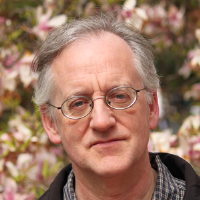Adam Green is Associate Professor of Philosophy at Azusa Pacific University. We invited him to answer the question “What norms or values define excellent philosophy of religion? as part of our “Philosophers of Religion on Philosophy of Religion” series.
Let us begin with a toy argument. “Either God exists or the moon is made of cheese. The moon is not made of cheese. Therefore, God exists.” This is not an example of excellent philosophy of religion. The argument is valid, of course. If God exists, the argument is sound as well. These formal features, however, aren’t anywhere near sufficient for excellence. If we were to recast this argument in a formal apparatus more difficult to wield than a disjunctive syllogism, giving the modally quantified argument from trans-world non-cheesiness perhaps, it would still not be the case that this more difficult to wield version of this argument would count as excellent philosophy of religion.
Here’s another example. A fantasy novelist thinks up a universe in which the ground is divine and when it is worshipped, it oozes life into the plants that grow on its surface. I’m sure that a talented enough novelist could do something with the idea. It may even be that a philosopher of religion could run a thought experiment that incorporated it into one step of a larger argument (e.g. on God’s relationship to nature and environmental ethics). By itself, however, an imaginative construction of an alternative moral and religious system isn’t excellent philosophy of religion. It’s simply fantasy.
Since this is a blog post, let’s cut to the chase a bit. What does make for good philosophy of religion, especially if neither excellence in formal reasoning nor imaginative metaphysical speculations is sufficient for it? In a word, relevance. That is, relevance to the attempts of actual people to answer the big questions at the heart of philosophy of religion regarding whether the natural is all there is, whether there is a God or some other divine feature of reality, how our answers to the first two questions affect moral agency and the meaning of life, etc. Furthermore, excellent philosophy of religion is judged in terms of our attempts to not only answer these questions to our own satisfaction but to explain, if not convince, interested others of the relevance of our answers to their own attempts to grapple with these questions.
If one were to boil this answer down to how it might apply to an argument such as, say, the one that opened this blog post, one would put it something like this. A good argument in the philosophy of religion must be a valid/ cogent argument that moves from premises one’s interlocutors can reasonably be expected to grant to a non-trivial conclusion that contributes towards our answering one or more of the big questions that anchor the field. That’s a sketch rather than a set of conditions meant to capture all cases and brook no counterexamples, but it is enough to see why both of our examples don’t count as excellent philosophy of religion. The argument to God’s existence from non-cheesiness uses a premise that no one in any doubt as to God’s existence would ever accept. The only folks who would reasonably accept the first premise are those who are independently confident of the conclusion. Likewise, by itself a fantasy novelist’s flights of fancy aren’t attempts to answer our serious questions about our world. They must be brought to bear in helping us furnish at least possible answers to our questions about our world before they count as contributing to the philosophy of religion.
On this way of looking at things, what counts as excellent philosophy of religion is a moving target with a historical anchor. On the one hand, philosophy of religion grows from a set of questions that we inherit along with various attempts to answer them. Our understanding of the questions might change and develop over time. Perhaps some questions get subtracted from the core and others get added, but nonetheless the philosophy of religion is a continuing dialogue that extends over time. Now, of course, at any given point in time, it is not always one conversation, and the Venn diagram overlap between the questions being asked in different conversations can be greater or lesser. This complicates the picture, but does not falsify it.
On the other hand, who the interested parties are who should be included in one’s class of interlocutors and what premises are contestable changes over time. Aquinas’ five ways are arguments for God’s existence that end with the line “and this everyone understands to be God”. I think Aquinas’ arguments counted as excellent philosophy of religion relative to his time because everyone who would have counted as a relevant interlocutor for Aquinas would have reasonably granted that the conclusions of his arguments pointed to God. Giving those same arguments now, however, requires bolstering premises that are not as obvious to present day readers and perhaps trying to bridge the gap between unmoved movers or uncaused causes and God.
Within the current scene, there is growing discontent in some quarters with the state of philosophy of religion. Since Plantinga, many Christians have entered the field, skewing the literatures of the genre in ways reflective of their distinctively Christian views and interests. The discontents cry foul, pointing out that many contrary points of view are being neglected. One can imagine them putting the complaint this way, “Though often formally competent and sometimes quite philosophically imaginative, work like this does not make philosophy of religion as a discipline excellent.”
From within the perspective briefly outlined here, I think we can say two things about the situation. On the one hand, excellent philosophy of religion is relative to the attempts of actual people to answer the big questions. So, there’s nothing intrinsically wrong with a bunch of Christians wanting to develop their Christian-informed answers nor is there any particular reason to sequester such attempts into some other non-philosophical discipline (e.g. “oh, they’re doing theology, not philosophy”). Likewise, the idea that every square of logical space ought to be explored and published on equally is at best naïve. People write about these things because they’re trying to answer the big questions, and attempts to answer the big questions aren’t going to be distributed evenly across the vast logical space of possible answers. Rather, they’re going to clump, building on and critiquing attempts to answer these questions that have come before. That doesn’t mean that novel explorations are either off limits or intrinsically undesirable, but the idea that we can have a field that develops all possible answers with indifference, somehow investing our efforts in ways that float free from what people actually suspect the answers to be is, once again, fantasy.
On the other hand, the discontent of the discontent signals where the moving target of excellence in the philosophy of religion is moving, of who wants to be included in the class of relevant interlocutors, and of how their perspectives might end up shifting the standards of evaluation in the field. There’s nothing intrinsically wrong with wanting to see the metrics of plausibility shift in sync with the demographics of participation either.








